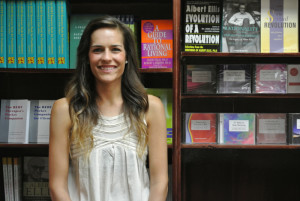by Shannon O’Neill, M.A.
It starts at a young age as little girls hear statements such as, “Hi there, beautiful!” or “Look how pretty you are!” It seems natural to converse with a child in this way. Unfortunately, an adult’s attempt to make a little girl feel special, teaches her the external requirements needed to obtain attention and approval.
As little girls grow to be women, society continuously demands that we strive for unattainable perfection. Businesses have recently caught on and, in an attempt to remain innovative, have redefined beauty by challenging the stereotypical image of perfection. For example, Dove’s Real Beauty campaign promotes attractiveness in all shapes and sizes. However, what Dove does not understand is that this movement is still promoting the importance of physical appearance and external beauty. Rather than suggesting tall and slim women are beautiful, Dove and other businesses alike have now been gracious enough to permit all women to feel attractive. Thus, external evaluation and comparison continues to exist as we allow society to tell us when we are finally acceptable, even if it means waiting for them to acknowledge that our external characteristics now qualify.
The preoccupation over physical features is not going away any time soon. So, what can be done? Many believe replacing low self-esteem with high self-esteem will suffice, which is exactly what Dove attempted to do. Unfortunately, self-esteem, low or high, tends to be conditional and externally funded. Rating oneself through the examination of external qualities (e.g., size 2, talented athlete, straight-A student, etc.) can cause emotional disturbances such as anxiety, depression, guilt, and so on.Rather than tolerating the continuous fluctuation of self-esteem, Ellis suggested individuals acknowledge their unwavering self-worth. Unlike self-esteem, an individual cannot earn self-worth (it does not require success of any sort), it is already an intrinsic value that is equal amongst us all. Therefore, forget the rating society offers you; once you believe you have worth, no one can make you feel worthless.
“You are good and deserving because you think you are and not because anyone awards you this kind of an inherent value” –Albert Ellis

